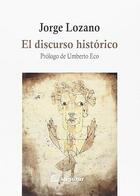
Thirty years ago, History could still be written with a capital letter and in the singular, but the capital letter became smaller and microhistories, postcolonial histories, victim histories, history of concepts emerged… But, beyond the variety of past events studied and the change in the perspectives of analysis or in the relationship with time, what is and how is the historical narration of events defined: the historical discourse?
As a specific discourse, it must obey its own rules that differentiate it from others. Thus, when trying to discover its specificity, it seems inevitable to contrast it with the fictional text. The former has a vocation to tell the truth that the latter, by definition, does not have. But neither is the opposition as clear as historians would like, nor is the homology as close as some impressionist approaches would like.






